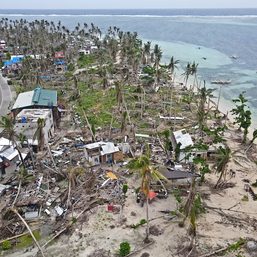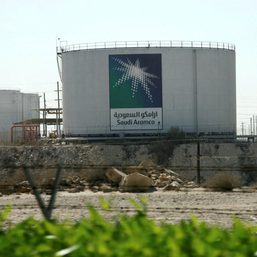SUMMARY
This is AI generated summarization, which may have errors. For context, always refer to the full article.
![[OPINION] No room for ‘business as usual’ in era of climate emergency](https://www.rappler.com/tachyon/2024/06/no-room-business-as-usual-climate-change-june-25-2024.jpg)
In climate discourse, experts assess how impactful strategies and solutions are based on different scenarios. Whether on adaptation or reducing greenhouse gas (GHG) emissions, on what happens at different levels of warming, these cases are compared to what is known as a “business-as-usual” scenario or the outcome if no action is taken.
We are already experiencing firsthand what happens if we stay in a “business-as-usual” scenario. Record-setting heat indices, suspension of classes, and losses in agricultural production have dominated headlines in recent months alone.
This is without mentioning the P506-billion losses and damages inflicted on the country in the most recent decade or any of the destructive storms that have left an unwanted mark on our collective consciousness.
Change against climate change is difficult for any sector, but change we must if we want to overcome its worsening impacts. Businesses are not exempted from this responsibility.
Building blocks
There are several plans and policies that the Philippine government is developing to address climate-related issues involving the private sector. All of these are in line with the country’s goal of low-carbon, climate-resilient development.
For instance, the House of Representatives is currently discussing at the committee level proposed legislation, such as House Bill (HB) No. 7705 or the low carbon economy bill. It not only aims to institutionalize existing governance practices such as greenhouse gas inventories and data management, but it also aims to establish a carbon pricing framework and system.
Among its key provisions is setting a mandatory cap on GHG emissions for different sectors, aligned with the national decarbonization pathway proposed to be set by a new council. This cap would determine the limit on this pollution before the excess from industries is subjected to carbon pricing, depending on a business’ mitigation and sustainability actions.
Any pathway to a low-carbon economy must be aligned with national targets, currently slated to be presented in the upcoming NDC (Nationally Determined Contribution) Implementation Plan. It provides the roadmap on how the country plans to justly transition while reducing its GHG emissions by 75% within the current decade, largely by attracting investments and securing foreign support totaling up to P3.6 trillion.
Another bill, HB9609 or the climate accountability bill, aims to strengthen corporate accountability in the context of addressing the climate crisis. Aligned with the United Nations (UN) Guiding Principles on Business and Human Rights, one of the ways to do this is to require big corporations to report on their climate-related financial disclosures, measurement of such emissions, and actions taken to avoid human rights abuses.
If the bill is passed into law, this specific portion can readily be incorporated into the Sustainability Reporting Guidelines that the Securities and Exchange Commission is currently updating. Its enactment would also enable businesses committing acts of greenwashing or climate denialism to be penalized, which is welcome in an age of rampant disinformation.
Not optional
There is no denying that any business or market, no matter the size or influence, is just as dependent on the state of the climate and environment as any other sector. While taking more slowly than what is needed, it is inevitable that the global market will continue to shift toward technologies that favor decarbonization; the same applies for the Philippines.
Limiting GHG emissions or introducing climate-relevant regulations does not equate to hindering economic development. In fact, multiple reports have already proven that “business-as-usual” operations would lead to more economic losses than gains at the global or national level.
At the global level, trillions of dollars worth of fossil fuel assets are projected to become stranded, including coal and gas; these costs increase with higher temperatures. The Philippines already loses 3% of its GDP due to extreme weather events worsened by the climate crisis; this would increase to 6% by 2100 without proper interventions.
The Philippines’ contribution to global warming is also increasing. Its emissions have increased by 114% from 1990 to 2017. As of 2020, the country has a 0.5% share of the GHGs produced globally, making it among the 40 highest emitters worldwide.
In the era of the climate emergency, there are common but differentiated responsibilities for each country and sector. Governments, businesses, civil society groups, and communities each have their own roles to play, respective of their relative and absolute capacities.
Yet for the sake of millions in the Philippines, one of the most vulnerable nations to the climate crisis, every gram or tonne of avoided, reduced, or removed emissions counts.
Make no mistake: the aforementioned proposed bills and plans are not intended to harm companies and enterprises; they aim to enable this sector to continue thriving despite the impacts of the climate crisis. This is part of the “whole-of-society” approach that is frequently emphasized to address this threat to the country’s environment, society, and economy.
Businesses that promote the message of decarbonization being ultimately bad for the economy are indicating that they favor the same carbon-intensive development pathways that rich, industrialized countries used. These pathways caused the climate crisis in the first place – and all the losses and damages we had to endure.
When it comes to transformative climate action, there is no room for branding monocrop plantations as forests or masking fossil fuel investments with clean-up efforts. There is no room for dismissing the urgency of reducing emissions or denying the reality of this crisis, in public or behind the scenes. Ultimately, long-term development outweighs short-term gains.
The Philippine private sector, especially those with adequate resources and capacities, must embrace current opportunities and perform its duties contributing to low-carbon, climate-resilient development. Some companies are already. There is no room for “business as usual” anymore. – Rappler.com
John Leo is the national coordinator of Aksyon Klima Pilipinas and the deputy executive director for programs and campaigns of Living Laudato Si’ Philippines. He has been representing Philippine civil society in UN climate and environmental conferences since 2016. He has been a climate and environment journalist since 2016.
Add a comment
How does this make you feel?
![[OPINION] Grading Marcos admin’s performance on the climate agenda](https://www.rappler.com/tachyon/2024/06/grading-marcos-performance-climate-agenda-june-25-2025.jpg?resize=257%2C257&crop=441px%2C0px%2C1080px%2C1080px)



![[OPINION] Climate finance: A call to action for the Philippines](https://www.rappler.com/tachyon/2024/05/tl-climate-finance.jpg?resize=257%2C257&crop=458px%2C0px%2C1080px%2C1080px)


There are no comments yet. Add your comment to start the conversation.